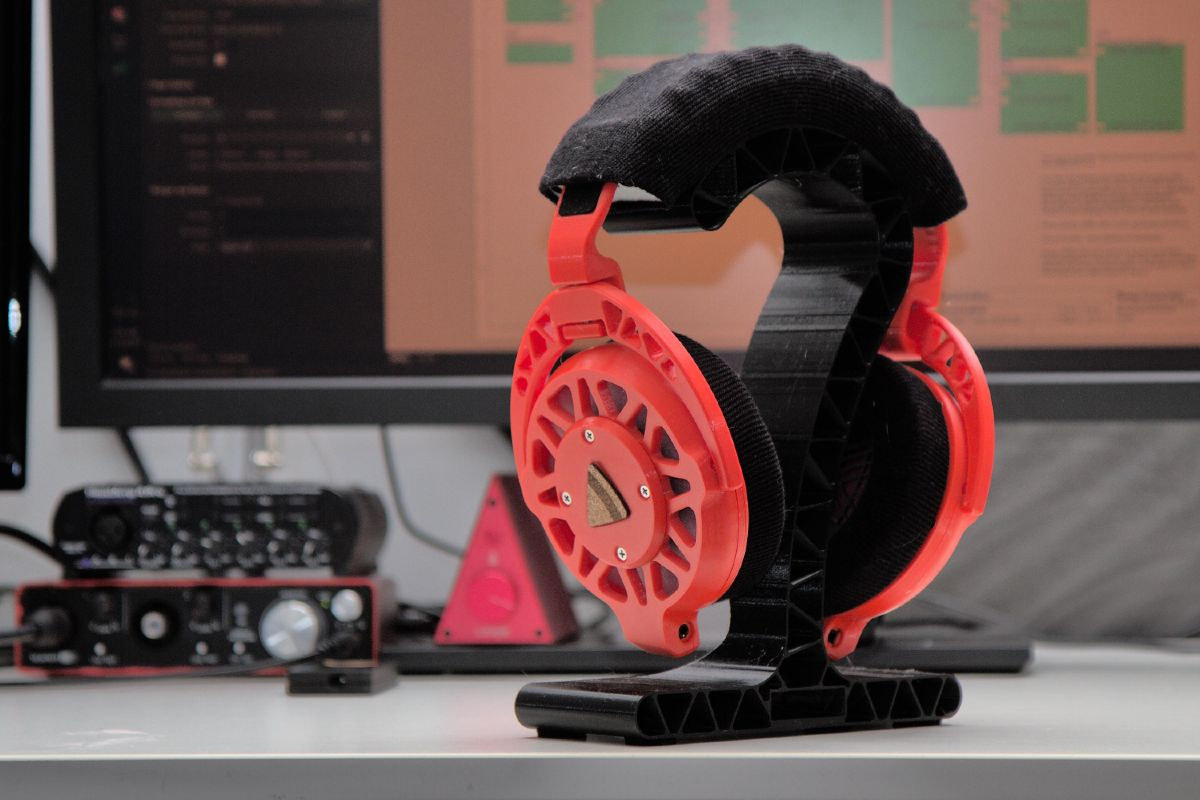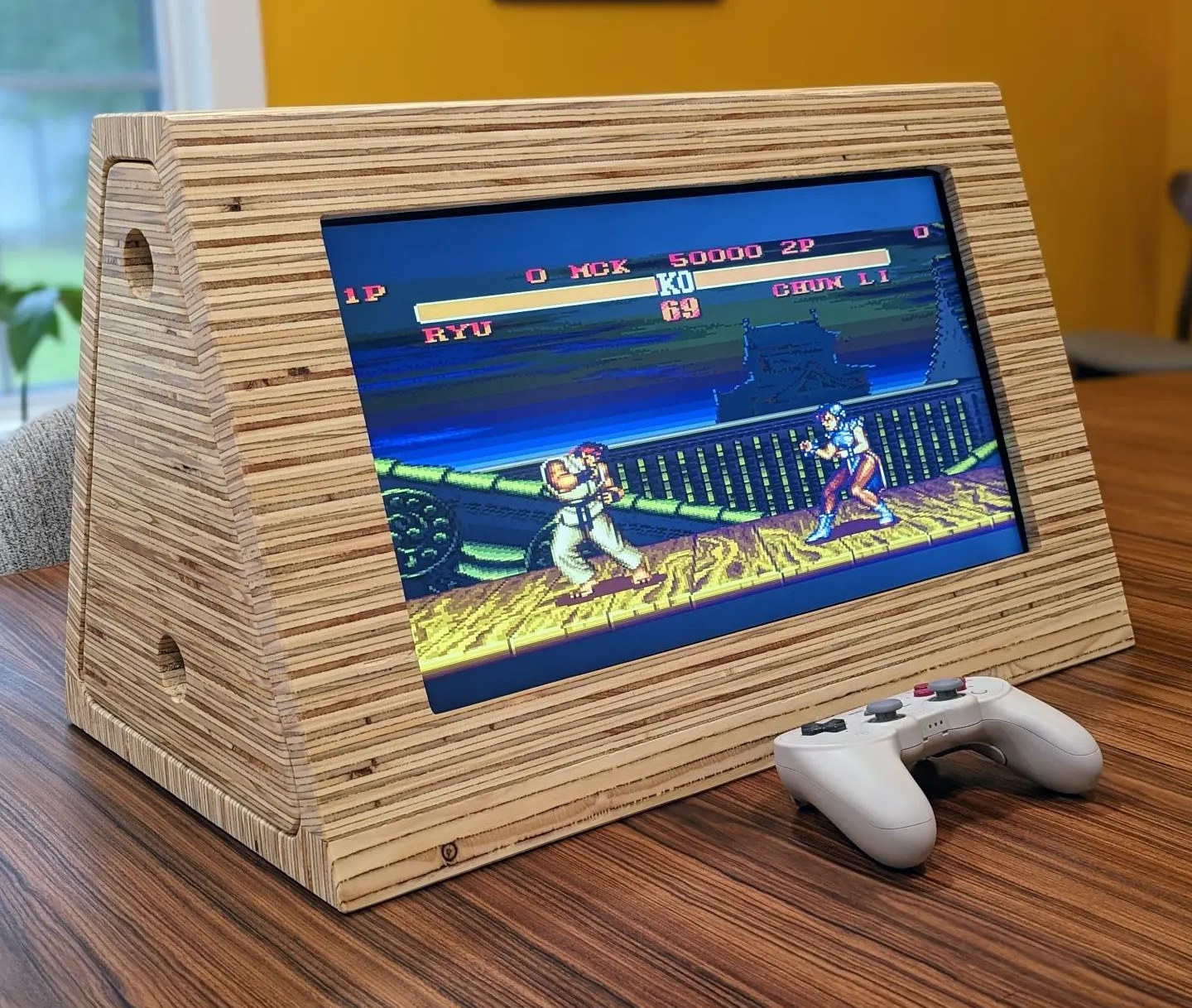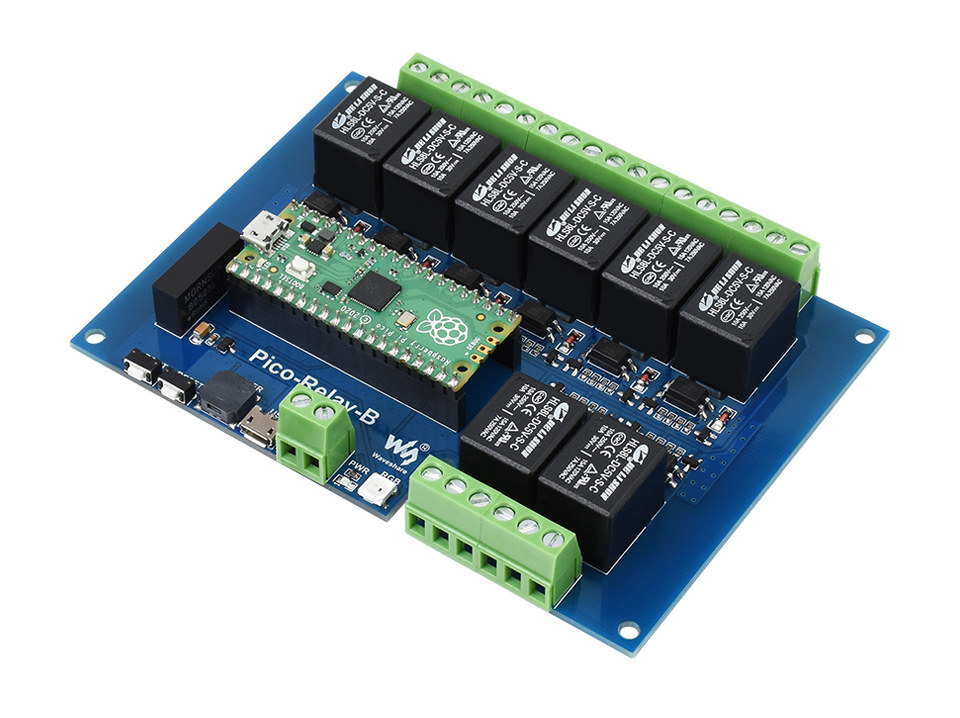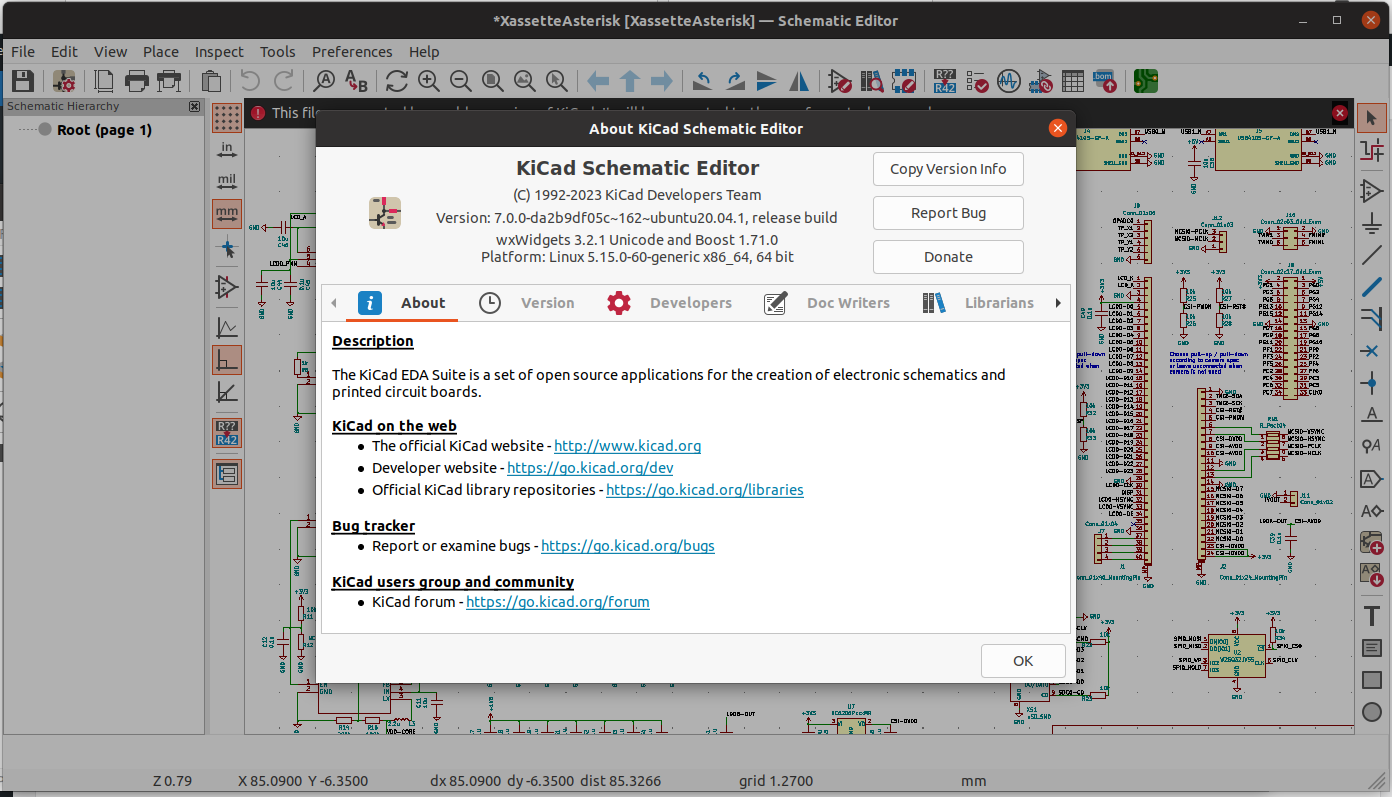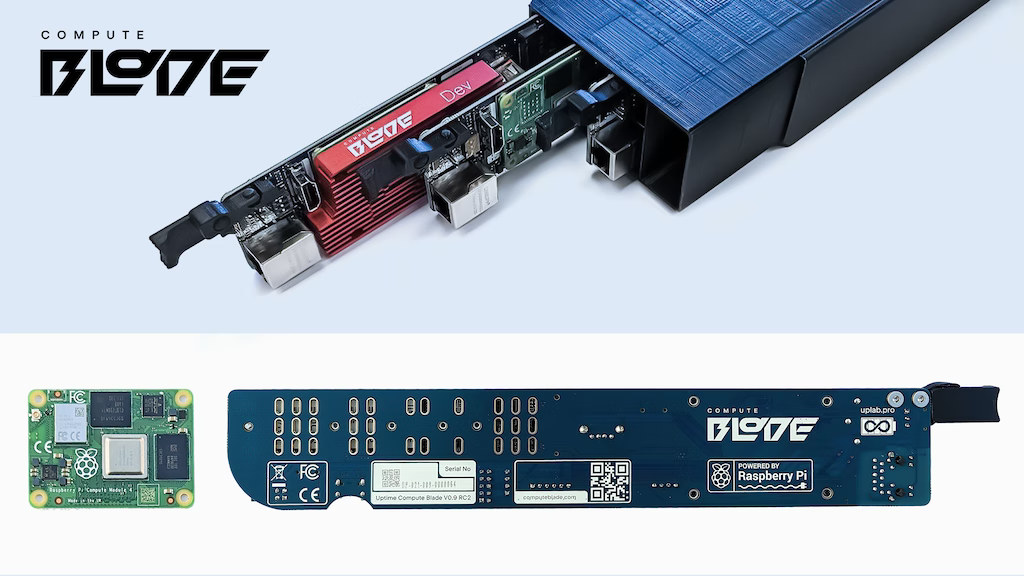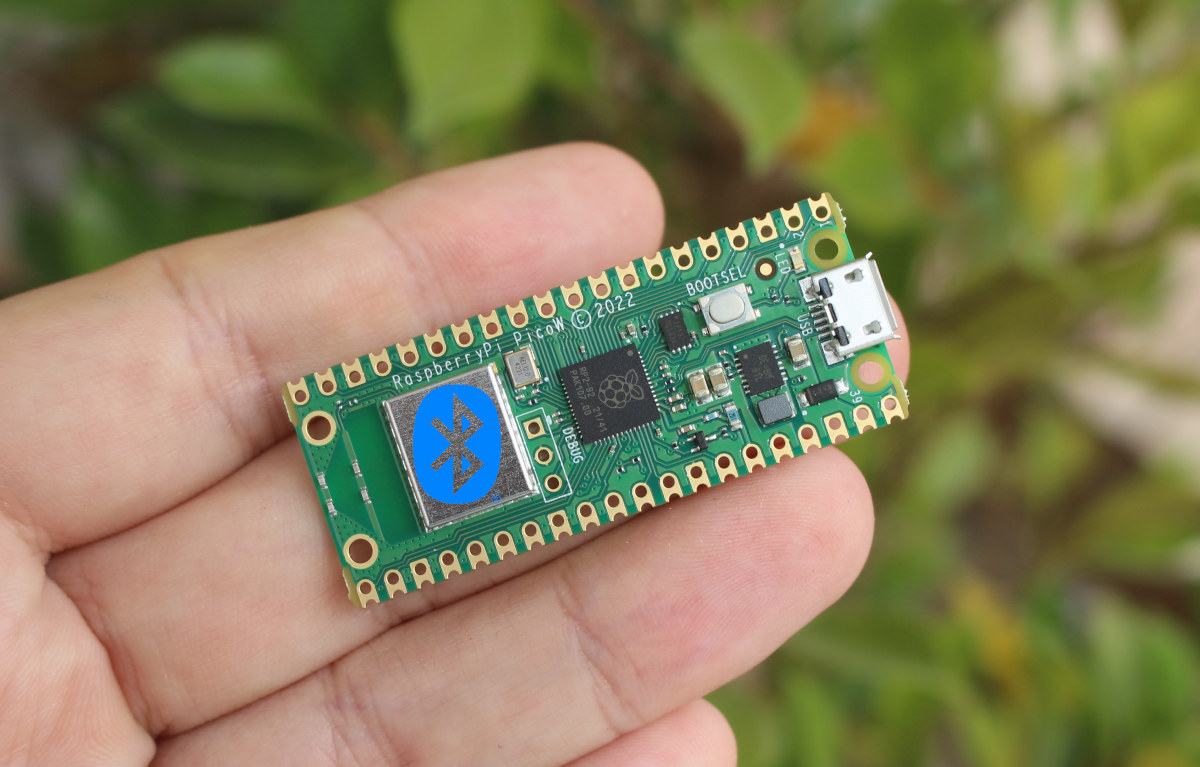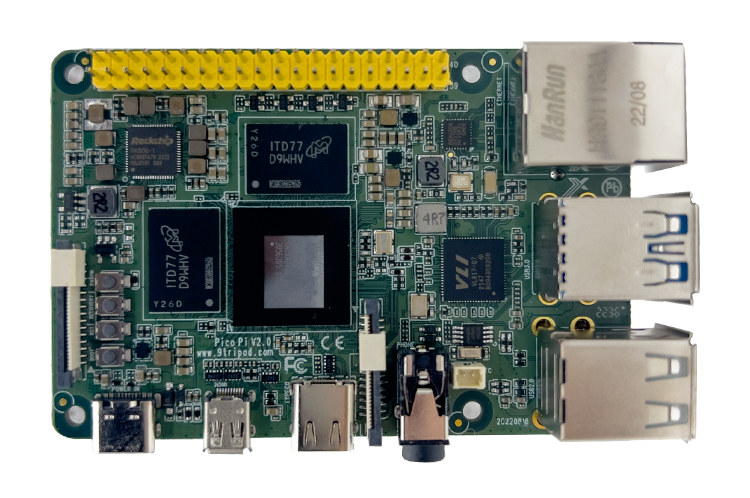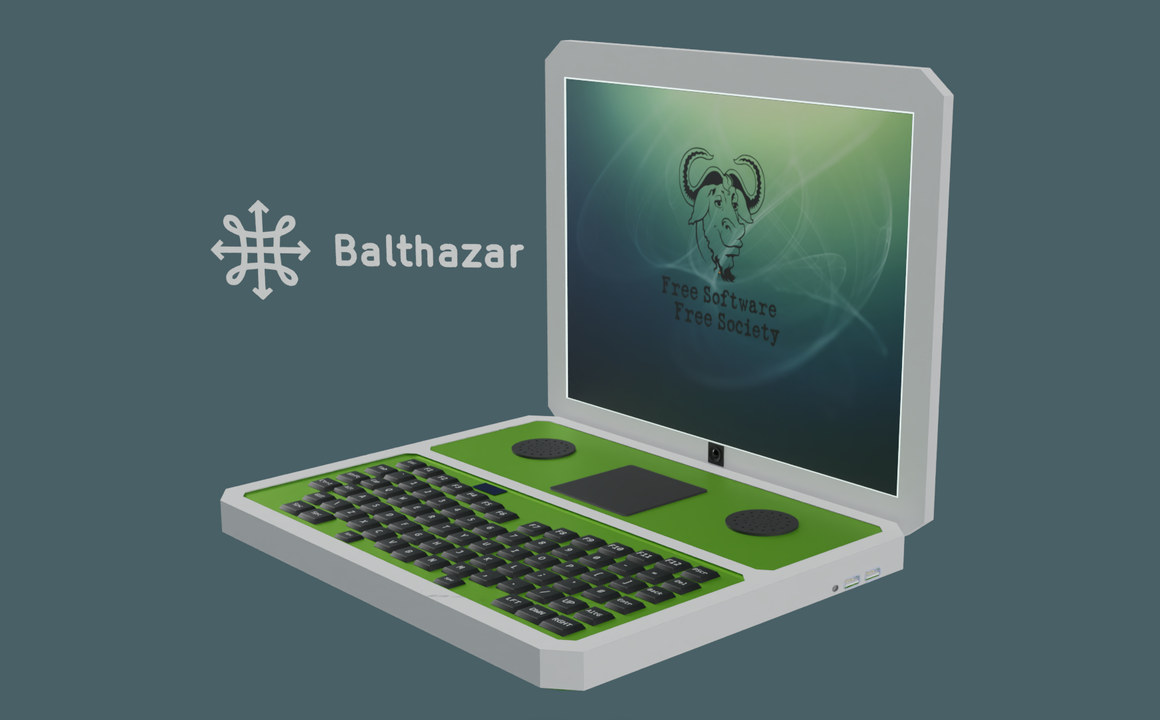I don’t think I’ve ever written about open-source hardware headphones. But that’s precisely what Ploopy offers with an amplifier based on a Raspberry Pi RP2040, a Texas Instruments PCM3060 24-bit DAC, and an amplifier circuit, as well as 3D printed parts and open-source firmware written in C. As we’ll see further below the project is reasonably well documented, and you can either build it from scratch, purchase a fully-assembled kit, or something in the middle. I suppose you could even do some knitting since woven covers are part of the build just in case making your own PCBs and 3D printing parts are not your things. The electronics are comprised of two boards: The Gould amplifier board with the Raspberry Pi RP2040, Texas Instruments PCM3060 24-bit 96/192 kHz DAC, and several TI OPA1688 audio operational amplifiers The Mazzoleni driver flex boards going into the left and right rings with a […]
Raspberry Pi 400 powers dual-display retro-gaming console
“Block after Block” has designed a dual-display tabletop retro-gaming console using plywood edge grain and a Raspberry Pi 400 keyboard PC that allows players to physically face each other during a fight or other gameplay. While there’s a galore of projects based on Raspberry Pi SBCs, the Raspberry Pi 400 keyboard PC is more like a consumer product due to its form factor, but Block after Block integrated the PC into its own retro-gaming console which involved a lot of woodworking skills and installing RetroPie on the Pi 400 device. This DIY project mostly involves spending time in a workshop cutting wood, and once you’re done with this part, it should be pretty straightforward. The following items are required for the project: A Raspberry Pi 400 keyboard PC Two monitors (second-hand monitors will do) An HDMI splitter to mirror the output from the Pi 400 along with a micro HDMI […]
Control 8 relays with the Raspberry Pi Pico using PicoRelay8 or Pico-Relay-B
8086 Consultancy’s PicoRelay8 is a baseboard for the Raspberry Pi Pico (W) board equipped with eight 28V DC / 10A Normally Open relays that be used for all sorts of automation projects, while Waveshare Pico-Relay-B also supports eight relays with both DC and AC loads and comes with some extra features. PicoRelay8 PicoRelay8 board specifications: Supported MCU board – Raspberry Pi Pico or Pi Pico W, and it may also work with “mostly” compatible boards such as the Banana Pi BPI-Pico-RP2040 or BPI-PicoW-S3, WeAct RP2040, and others as long as all GPIO used on the PicoRelay8 are exposed on the same pins. Relays 8x HF3FF/005-1HST relays rated for 28V DC/10A, as well as 10A/250V AC and 15A/125V AC, but the board is not designed to get power from the mains (safety-wise), so it’s only really suitable for DC loads Each relay has a 2-pin terminal block attached to it. GPIO […]
KiCad 7.0.0 release – Custom fonts, text boxes, SpaceMouse, crash reporting, and much more
KiCad 7.0.0 open-source EDA software has just been released with a range of new features from custom fonts to 3Dconnexion SpaceMouse integration to opt-in Sentry crash reporting, and many more. It took over three years between KiCad 5.0.0 and KiCad 6.0.0 announcements, but only a little over a year for the release of KiCad 7.0.0. Did KiCad developers acquire superhuman abilities or did AI get involved in the development somehow? Most probably not, and instead they change the release schedule to a yearly one, so we should get annual releases of the open-source EDA suite going forward, with KiCad 8.0.0 to be released in Q1 2024. Some notable changes to KiCad 7.0 include: Custom Fonts support is now available in the schematic, PCB, and worksheet editors to allow the use of any system font. Text box support was added in both the schematic and PCB editors. 3Dconnexion SpaceMouse support in […]
Compute Blade – A Rack-mountable PoE-powered Raspberry Pi CM4 carrier board with an NVMe SSD (Crowdfunding)
Uptime Lab Compute Blade is yet another Raspberry Pi CM4 carrier board, but it’s kind of unique with its long design designed to be mounted in racks and the board features an M.2 socket for an NVMe SSD plus an Ethernet port with PoE+ support. The board is designed for high-density, low-power consumption, plug-and-play blade servers for home and data-center use and users can build Home labs, edge servers with lower latency than cloud services, and CI/CD systems (build farms) for testing and software development. Compute Blade specifications: SoM – Raspberry Pi CM4 support and potentially alternative system-on-modules such as Radxa CM3 and Pine64 SoQuartz Storage NVMe SSD socket up to 22110 (2230, 2242, 2260, 2280 also supported) Optional MicroSD card slot Video Output – Optional HDMI port up to 4Kp60 Networking – Gigabit Ethernet RJ45 port with PoE+ USB USB Type-C port to flash the bootloader, eMMC/SD card, and […]
Raspberry Pi Pico W gets Bluetooth support in SDK 1.5.0
The Raspberry Pi Pico W board was launched with a WiFi 4 and Bluetooth 5.2 module based on the Infineon CYW43439 wireless chip in June 2022, and I wrote a tutorial showing how to connect to WiFi a few days after the launch, but nothing about Bluetooth. That’s because while the Raspberry Pi Pico W hardware supports Bluetooth, we were told that Bluetooth was not enabled at the time, but might be at a later stage. Alasdair Allan, who is responsible for the Raspberry Pi documentation, said Bluetooth support was scheduled very soon, and the SDK 1.5.0 release of the Pico C SDK is now available with Bluetooth implemented using BTstack low footprint dual-mode Bluetooth stack. Bluetooth support is still considered Beta and the SDK 1.5.0 implements the following key features and updates: New libraries for Bluetooth Low Energy (LE) support. Bluetooth Classic support. Bluetooth Sub Band Coding (SBC) encoder […]
9Tripod Pico Pi V2.0 SBC features Rockchip RK3588S SoC in Raspberry Pi 4 form factor
9Tripod Pico Pi V2.0 is the third Rockchip RK3588S SBC offering a powerful alternative to Raspberry Pi 4 while keeping the same form factor. It follows the Cool Pi 4 and Radxa ROCK5 Model A single board computers introduced in the last couple of months. The Pico Pi SBC, not to be confused with the Raspberry Pi Pico :), comes with 1GB to 32GB RAM, 4GB to 128GB eMMC flash, and pretty much the same port layout as the Raspberry Pi 4, except for one of the micro HDMI ports being replaced by a USB Type-C port with support for DisplayPort. 9Tripod Pico Pi V2.0 specifications: SoC – Rockchip RK3588S CPU – Octa-core processor with 4x Cortex-A76 cores @ up to 2.2-2.4 GHz, 4x Cortex-A55 cores @ up to 1.8 GHz GPU – Arm Mali-G610 GPU with OpenGL ES 3.2, OpenCL 2.2, and Vulkan 1.2 support VPU – 8Kp60 video […]
Balthazar – An open-source hardware modular RISC-V, Arm, or FPGA laptop
The Balthazar Personal Computing Device (BPCD) is an open-source hardware 13.3-inch laptop with a RISC-V, Arm, or FPGA module and designed to be upgradable, expandable, and sustainable. The developers say the laptop is based on a few concepts inspired by the EOMA68 project. The EOMA68 is a CPU module based on the PCMCIA form factor, and an Allwinner A20 EOMA68 module was showcased in a prototype of the Rhombus Tech 15.6-inch Libre Laptop but I don’t think the project was ever manufactured. Balthazar laptop features: SoM with RISC-V, FPGA, or Arm Cortex-A7x processor plus memory and flash Storage – SATA SSD, eSATA connector, microSD card socket Display – 13.3-inch non-glare display Video Output – HDMI Audio – Speakers, detachable microphone array Camera – Detachable webcam Connectivity – Ethernet, WiFi USB – 2x USB 3.0 ports, Micro USB OTG port, Micro USB port User input Waterproof keyboard with an illuminated track-point […]


